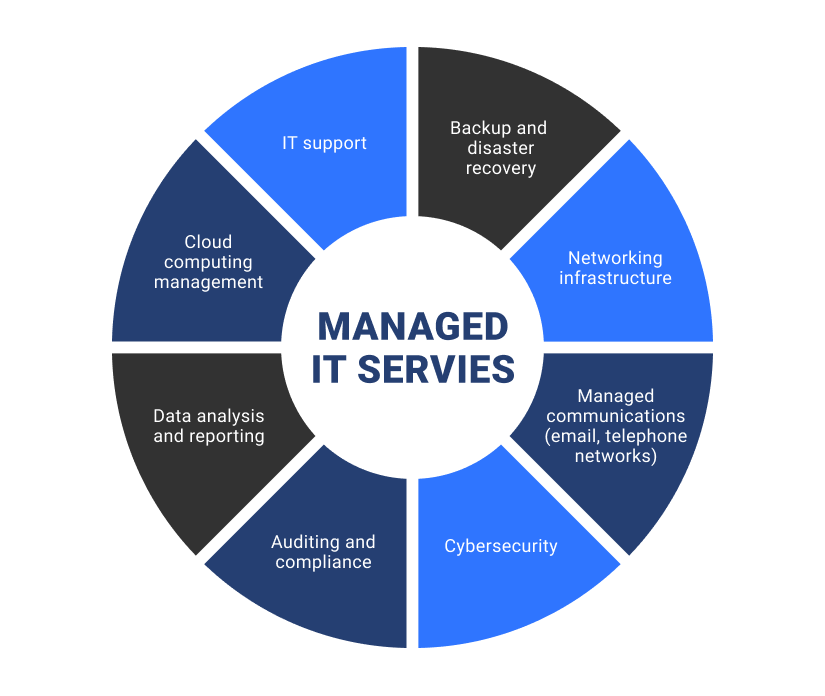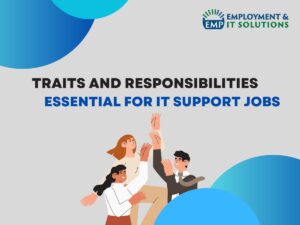An IT managed services is an information technology (IT) work completed by a third-party contractor and supplied to a client. In an IT managed services arrangement, the IT managed services provider is responsible for the operation of the IT services and equipment, while the customer typically pays a monthly charge to receive the service. There are many different types of IT service solutions, but the goal behind all of them is to move the burden of maintaining IT from the customer to a service provider. In a good managed services contract, a customer gains predictable pricing and the freedom to focus on core business concerns rather than IT management tasks.
Most common services
Remote Monitoring:
Remote monitoring and administration of servers, workstations, and mobile devices is a popular IT managed services. Remote monitoring and administration is frequently a basic, foundational service offered by managed service providers. And because numerous managed services providers supply this function, there is intense competition and pressure on profit margins.

Cybersecurity Services:
It has become necessary for managed service providers to differentiate their solutions due to the commoditization of fundamental IT managed services. Managed security services is a trendy direction. Customers are demanding IT security support from their service providers. As a result, service providers are adopting managed security services practices or collaborating with security vendors to offer cybersecurity services.
Cloud computing:
With the introduction of cloud computing, IT managed services have grown to include cloud services. Service providers, for example, may specialize in infrastructure as a service (IaaS), offering managed public cloud services in partnership with cloud providers such as Amazon Web Services (AWS), Google, and Microsoft. Service providers may also promote managed platforms as a service (PaaS) or collaborate with software as a service (SaaS) suppliers.
IP telephony:
An IT managed service provider may also want to stand out in the communications sector. Examples include managed IP telephony services, in which a managed services provider takes over responsibility for voice services within a customer account.
For the best IT managed services in your area, search for the “IT managed services near me” . It will pop up the suggestions that are nearest to you.
Benefits of IT managed services
For skills gap:
IT managed services can benefit teams who lack the time, expertise, or experience to handle specific business processes internally or prefer to focus their efforts on other initiatives. By relying on an expert to perform a service, your staff may focus on creativity rather than repetitive activities.
Cost saving:
Many managed services are based on variable cloud costs. These services might help you save money on staffing and training. Other managed services are usually priced as a fixed monthly payment. Engaging a managed service business rather than establishing in-house IT operations might be less expensive and more predictable, making budgeting easier.
Reliable:
Because the managed service provider is in charge of maintaining the service’s availability at all times, you don’t need to worry as much about outages. Services and IT support are given under a SLA, so you know what to expect and when to expect it. An in-house IT team is frequently juggling many duties, whereas an MSP may focus on perfecting delivery of their single service. This includes focusing on the service’s health and security, and applying patches and upgrades as needed.
EmpIT solutions is becoming one of the best IT managed services provider. Visit our website EmpIT for more details.
Conclusion:
To summarize, implementing IT managed services is a strategic decision that can dramatically improve the efficiency, security, and overall performance of an organization’s IT infrastructure. Businesses that outsource IT resource management to qualified and experienced service providers can focus on their core skills, increase productivity, and gain a competitive advantage in today’s evolving digital market.





